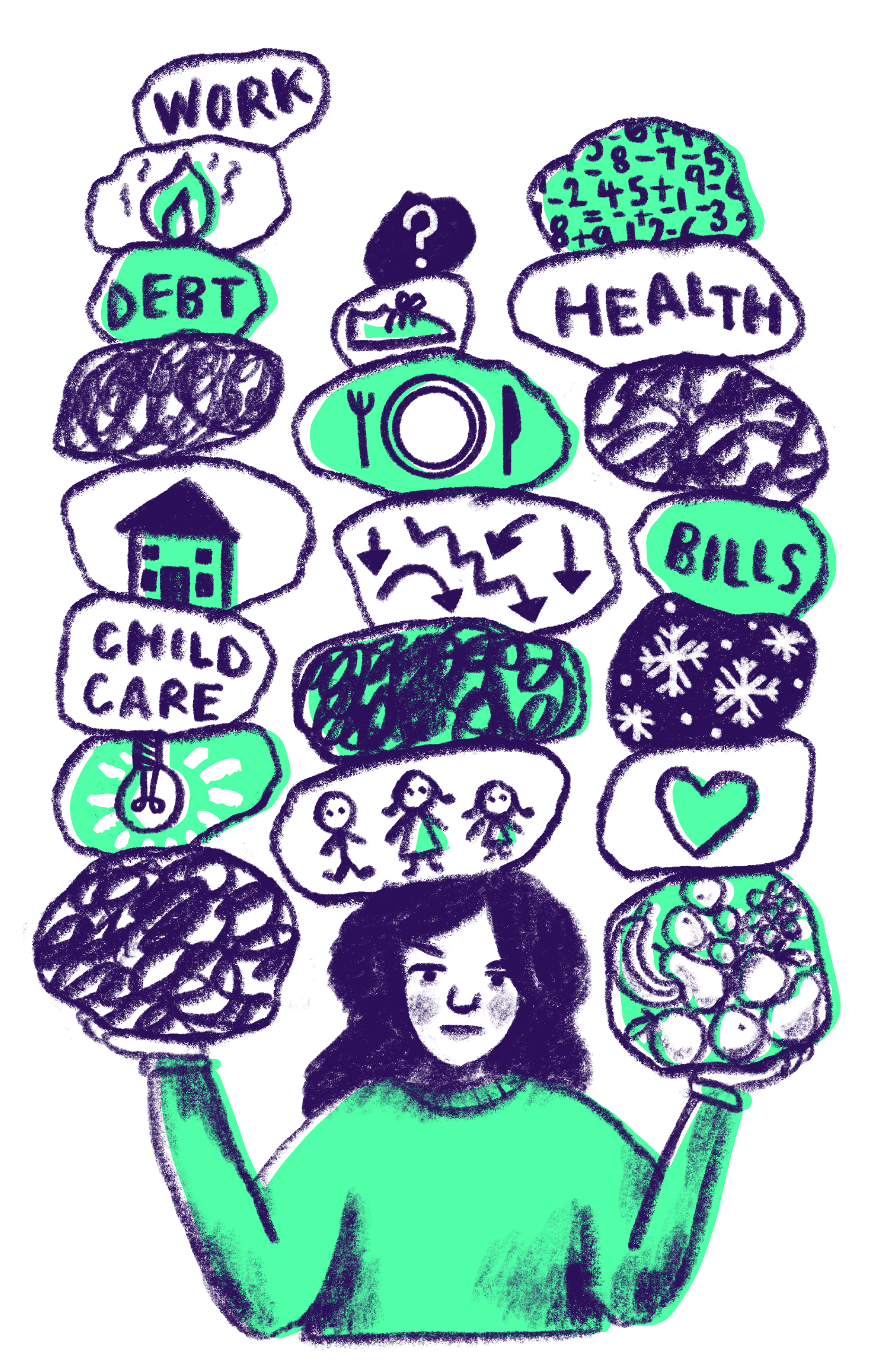
 Photo: Catherine Fortey
Photo: Catherine ForteyThe Evidence is Clear
28 May, 2023“My worst experience was signing on and my daughter who was 6 at the time was very poorly. I had nobody to help with childcare as she was absent from school. I called the job centre to explain the situation but they insisted if I did not sign on and comply with them, I would have my benefit sanctioned. It was hard work, carrying a 6 year old from the bus stop to the job centre. My daughter was running a temperature and drowsy. She cried throughout the time of interview/ signing on. … It's surreal as if having a child didn't matter and it was expected that I had parents to help out, and I had to explain they both passed away. I felt as if I was judged and I was embarrassed to be signing on.” – Bessie
Bessie is one of over 100 low income parents and carers taking part in the Changing Realities research programme who come together to document their experiences and to call for change. Last week, as part of Mental Health Awareness week, we published a new report, Where’s the Credit? Single Parents, Universal Credit and Mental Health, which combines the accounts of low income parents and carers in Changing Realities with statistical analysis of the mental health impacts of Universal Credit. The report shows clearly and incontrovertibly that Universal Credit harms the mental health of claimants and is particularly damaging to the mental health of lone parents.
Parents and carers, like Dotty, described the immense stress and anxiety brought on by the financial precarity that Universal Credit creates:
Being on Universal Credit has meant that I was often faced with the decision of whether or not I should use my money to eat or heat the home, which has in turn, caused me a lot of anxiety about whether or not i'll have enough money to last me for the rest of the week (after food and fuel has been paid for). – Dotty
We also heard from parents like Jenny, who documented the seemingly inflexible and often unreasonable expectations of parents navigating caring responsibilities and employment:
When I first claimed universal credit I was sent on a course specific for call centre work. It was compulsory and I was told I was guaranteed an interview at the end. I fully engaged with the week long program but the interview turned out to be with someone on work experience and the jobs didn’t actually exist. I felt like a pawn being manipulated in game. The threat of being sanctioned means adhering to the rules come what may. Fortunately I found work via an agency and then subsequent employment on a part-time basis a month after this awful experience. As I work in a school - and only get paid for 39 weeks per year, I’m terrified for when the new universal credit minimum hours come into force as I will drop below the threshold and will therefore be expected to seek additional work. For context - I’m a single (solo) mum without a support network. – Jenny D
It was clear from the accounts of parents that Universal Credit entirely fails to recognise the demands of parenting and creates profound financial hardship. The everyday work of navigating the complex Universal Credit system can be immensely challenging and stressful.
But for lone parents, navigating these immense challenges without the financial, emotional and practical support that can come from a partner makes the whole experience harder still. It can lead to parents like Bessie feeling forced to take an unwell and distressed child along to the Jobcentre because the staff and the wider system of which they are part are unwilling to show compassion or care.
The additional challenges faced by lone parents are borne out in our quantitative data too: work from colleagues in economics at the University of York shows that the incidence of mental health problems for lone parents on UC is 32% compared to 28% for all adults in receipt of UC. This is higher than the incidence of mental health problems for lone parents in receipt of legacy benefits and for all adults in receipt of legacy benefits, indicating that UC in itself is harmful to mental health and that this negative effect is particularly pronounced for lone parents.
Change is urgently needed to better support parents, and especially, lone parents in receipt of Universal Credit. We believe that social security has the potential to assist people through hard times, improve mental health, and be an embodiment of a compassionate and fair society. At present, though, it is failing completely to support claimants at points of profound vulnerability.
This past week has been difficult. Our universal credit was drastically cut due to me being paid twice in an assessment period… Trying to find a way to get us through the next three weeks is proving unsuccessful, draining and scary. When will they fix the benefit system so it actually benefits? – Edison
Acknowledgements: Changing Realities is funded by the Abrdn Financial Fairness Trust. It is a partnership between parents and carers, researchers at the University of York and Child Poverty Action Group. The work was additionally funded by the Wellcome Trust. We are very grateful to all the parents who work with us, and give up their time to document their experiences and push for change.



